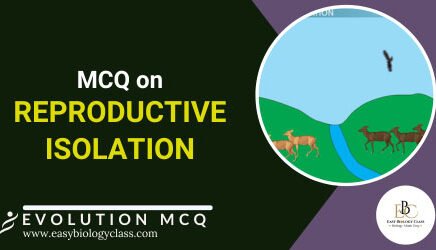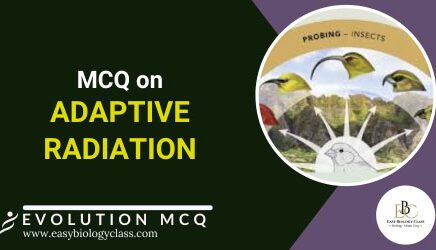
MCQ on Darwinism with Answers (PDF)
Darwinism refers to the theory of evolution by natural selection, originally proposed by Charles Darwin. It suggests that organisms with traits better suited to their […]

Darwinism refers to the theory of evolution by natural selection, originally proposed by Charles Darwin. It suggests that organisms with traits better suited to their […]

Neolamarckism is a modern interpretation and modification of Lamarck’s theory of evolution. While it acknowledges the inheritance of traits acquired during an organism’s lifetime, it […]

Reproductive isolation refers to mechanisms that prevent different species or populations from interbreeding and producing viable offspring. It is crucial for maintaining species boundaries and […]

Genetic variability refers to the diversity in gene frequencies within a population, which leads to differences in the genetic makeup of individuals. It plays a […]

Adaptive radiation is the process by which a single ancestral species rapidly diversifies into a wide variety of forms to exploit different ecological niches. This […]

Lamarckism, also known as Lamarckian evolution, is an early theory of evolution proposed by Jean-Baptiste Lamarck. It suggests that organisms can pass on traits acquired […]

Botany questions in PhD entrance exams assess a candidate’s deep understanding and analytical thinking in advanced plant sciences. They often focus on specialized topics such […]

Plant science questions in PG entrance exams delve into detailed aspects of botany, covering plant physiology, biochemistry, molecular biology, and genetics. These questions often test […]

Botany questions in MSc entrance exams are designed to test in-depth knowledge of plant sciences and related disciplines. Topics often include advanced plant physiology, molecular […]